IT’S quite an electrifying time for the Filipino American literary landscape as in the first eight months of this year alone, we have come across and devoured several books across genres — whether young adult fiction or cooking.
Our editorial team has written about titles, such as poetry collection “Loves You” by Sarah Gambito, Grace Talusan’s memoir “The Body Papers,” Malaka Gharib’s graphic novel “I Was Their American Dream,” James Beard Foundation’s Outstanding Pastry Chef semifinalist Margarita Manzke’s cookbook “Baking at République,” and traveling chef Yana Gilbuena’s “No Forks Given.”
Other books we’re excited about this year include “Trick Mirror: Reflections on Self Delusion” (August), a book of essays on contemporary digital culture by New Yorker staff writer Jia Tolentino, and “Lalani of the Distant Sea” (September), an epic fantasy inspired by Filipino folklore by 2018 Newbery Medal Winner Erin Entrada Kelly.
With summer almost ending, these following three books by Fil-Am authors are enthralling reads whether you need something to read poolside or during a long car ride.
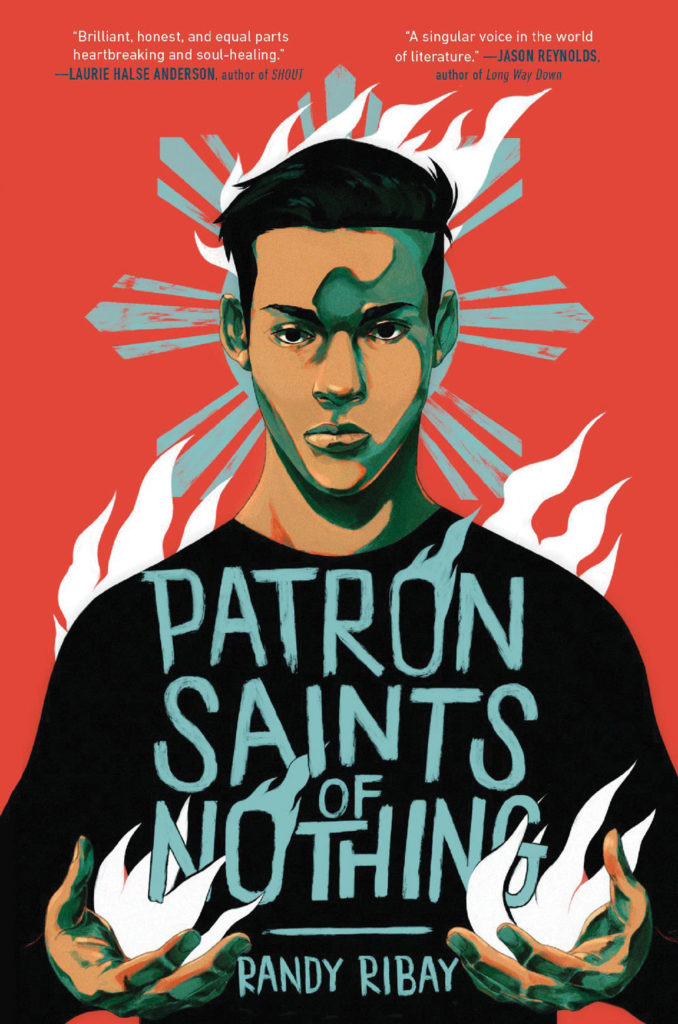
“Patron Saints of Nothing” by Randy Ribay
Since Philippine President Rodrigo Duterte took office in 2016, his tough, unfiltered rhetoric and crackdown on illegal drugs have made international headlines. For the Filipino diaspora — particularly the second and third generations growing up in the United States — this has opened up debates as to whether they have a right to an opinion on the current administration or to take action if they don’t even live in the Philippines and do not experience the day-to-day realities.
In “Patron Saints of Nothing” (Kokila), Filipino American teenager Jay Reguero faces these questions of identity after his cousin Jun is killed as part of the drug war. From the get-go, the young adult novel tackles death and the ways we learn how to process grief, or even avoid it. The character of Jay is refreshingly sensitive and vulnerable and is trying to make sense of his place in the world.

“That’s the foundation of the rest his character — if you’re sensitive and thinking about things carefully and deeply, then you’re going to have to process things about your identity, about what you think about your family. Because if you’re stoic and that stereotypical idea of a male is repressing emotions, then you don’t think about those things carefully,” Ribay, a high school teacher in the Bay Area, told the Asian Journal.
Though Jay lost touch with Jun after years of letters, his curiosity won’t stop him from uncovering the truth of the matter. The book avoids being a ‘savior’ story wherein Jay’s purpose is to go to the Philippines and save the day with a solution to the drug war.
“I didn’t go into the story intending for Jay to lead some massive protest and be in the streets and at the end of the day, the laws are changed,” Ribay said. “That’s not the role we Filipino Americans need to play. We certainly have a right to voice our opinions and to advocate but we’re doing that in support of the Filipinos in the Philippines living with that reality.”
Beyond the current political climate in the Philippines, Ribay — who is half Filipino and half white and has certain similarities to Jay’s character — hopes the book opens up conversations of feeling out of place and having that dual identity of being Filipino and American.
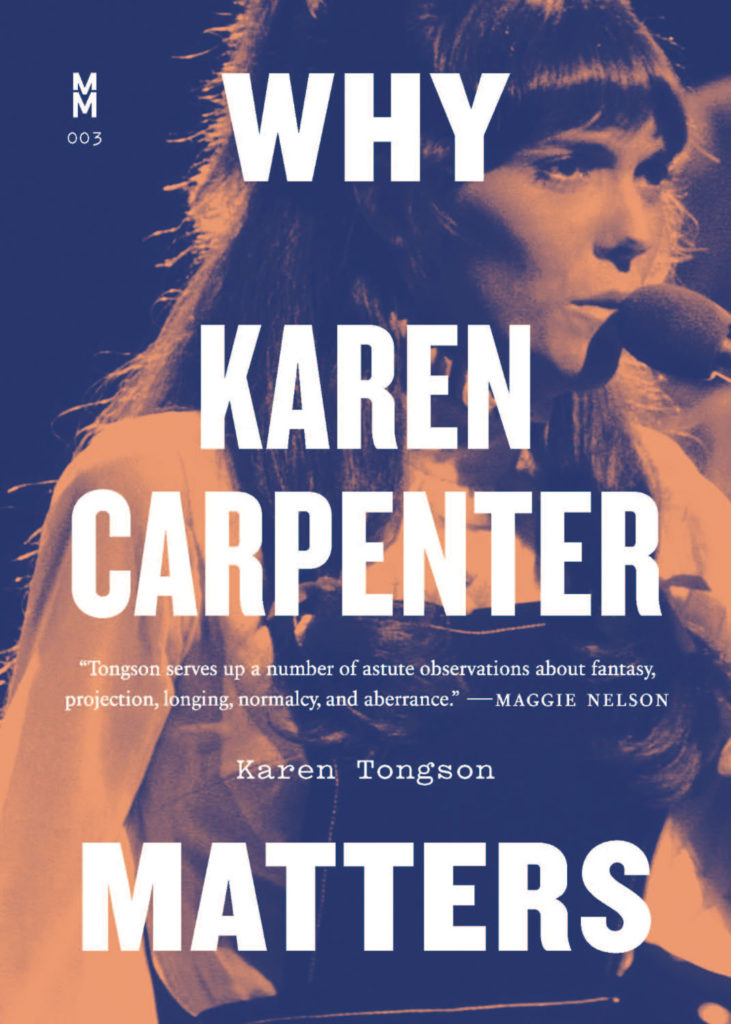
“Why Karen Carpenter Matters” by Karen Tongson
Five decades later, Karen Carpenter — lead singer and drummer of The Carpenters — continues to be an icon around the world, including the unlikely place of the Philippines. Why the ‘70s songstress’ influence persists today is the premise of “Why Karen Carpenter Matters” (University of Texas Press) by Karen Tongson, a University of Southern California professor and culture writer.
With other biographies on Karen Carpenter available, “Why Karen Carpenter Matters” doesn’t disclose any new information per se, but rather offers a part memoir, part biography that shows how her life has impacted someone like Tongson.
Tongson — the daughter of two Filipino musicians who named her after the Carpenters frontwoman — draws parallels between her upbringing and that of Karen Carpenter, be it their Southern California upbringing or explorations of self-identity. In a chapter called “Queer Horizon,” for example, Karen Carpenter’s struggles with anorexia and physical presentation are explored. “One of the new revelations in the biography I’ve written is really to consider her anorexia in relation to some kind of discomfort with her gender presentation. That’s kind of a queer read,” the author told the Asian Journal.
Through this, Tongson reflects on how coming into her own identity had affected the dynamic with her mother and opened up questions about her gender. (“I merely wanted freedom from the discomforts and constraints of femininity, not being able to move around, take up space, pee anywhere you want, and speak above a whisper,” she writes on p. 86.)
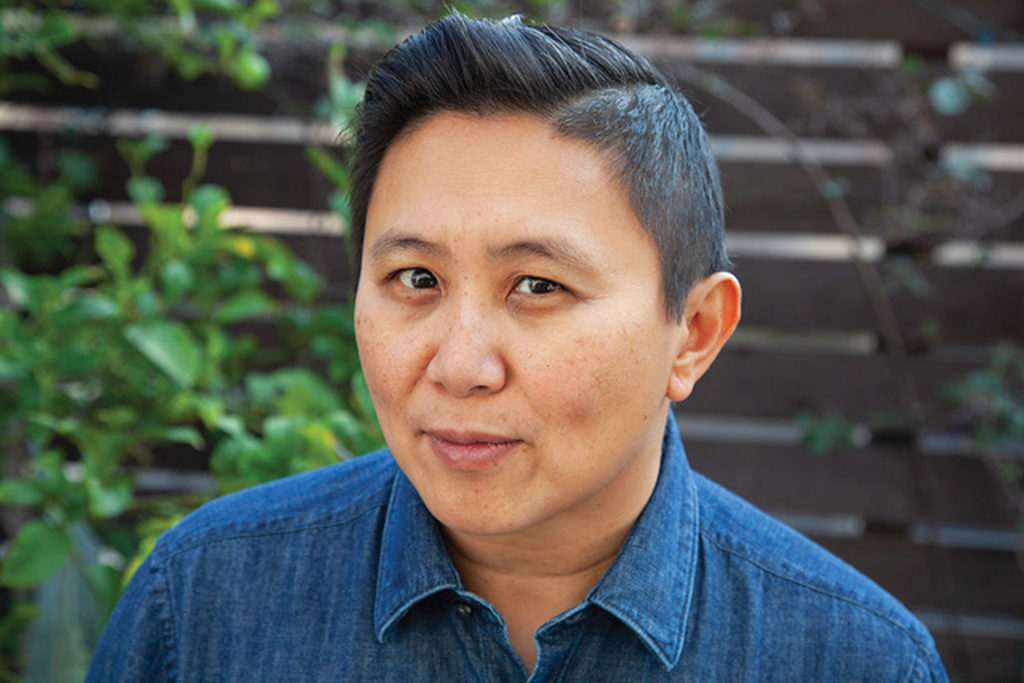
Overall, the book is a quick read at 130 pages; there’s nostalgia and empathy you feel and you can’t help but play some of The Carpenters’ greatest hits in the background. Though Karen Carpenter left the world too soon, her music and legacy will continue to carry on across future generations, regardless of background or race.
“The thing that Filipinos are both praised and derided for is our capacity to imitate people’s voices and to perform covers and to be the paradoxically the best imitators of American popular music. I want us to see that is not at all a weakness, but a strength that is a skill and ability. It’s not about the fact that we are just subjected to the post-colonial adoration of American pop culture…we’re not worshipping Karen Carpenter, but she in many respects belongs to us and has become Filipino through the way that we’ve listened to her, sung her music, the way that she’s become a part of our canon and karaoke books,” Tongson told the Asian Journal.
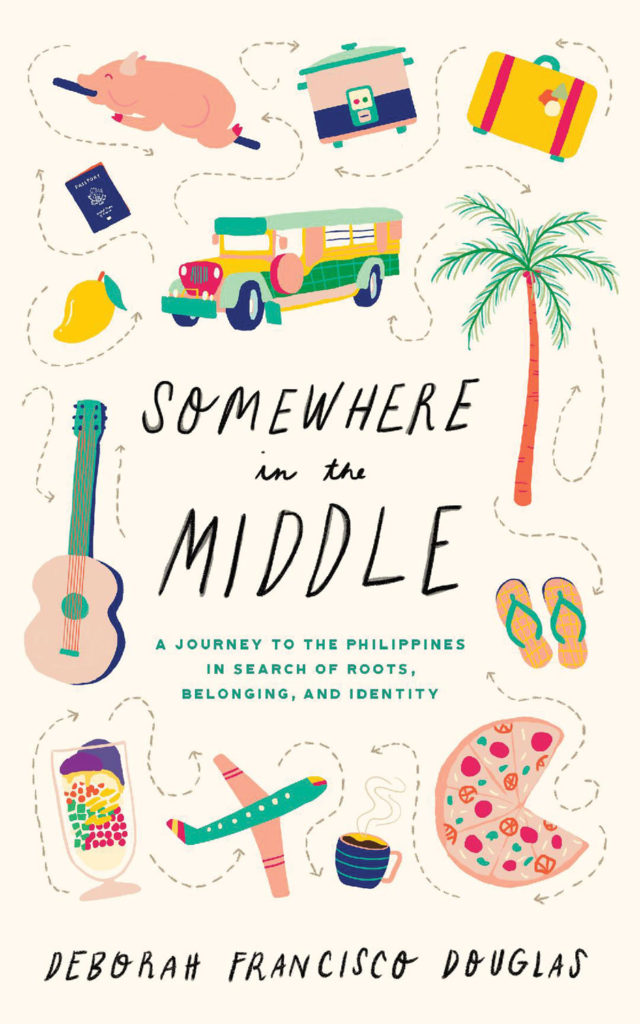
“Somewhere in the Middle” by Deborah Francisco Douglas
Deborah Francisco Douglas grew up not fully knowing her Filipina side, but an opportunity to learn about it was some sort of fate when she was assigned to the Philippines as a Peace Corps volunteer. What started as a series of blog posts and journal entries, “Somewhere in the Middle” (Peaceful Mountain Press) is Douglas’ debut memoir about her three years living in the country and the lessons of self-discovery along the way.
“I am content with being in the middle, and I have also accepted the various names that people use to describe me. Whether mestiza, half Filipino, mix-mix, halo-halo, FilAm, or Filipino American, I am not defined by just a name. I am the only one who can define me, and I will continue doing so for the rest of my life, floating in and out of my cultural identities in the same way the clouds floated through the valley below my mountains upon mountains,” Douglas writes.
Douglas leaves no detail behind as she sets the scene of each chapter during her time in the mountain province of Baguio — down to the items tricycle passengers carry with them (e.g. live chickens) to street vendors with taho containers to the route she would run daily.
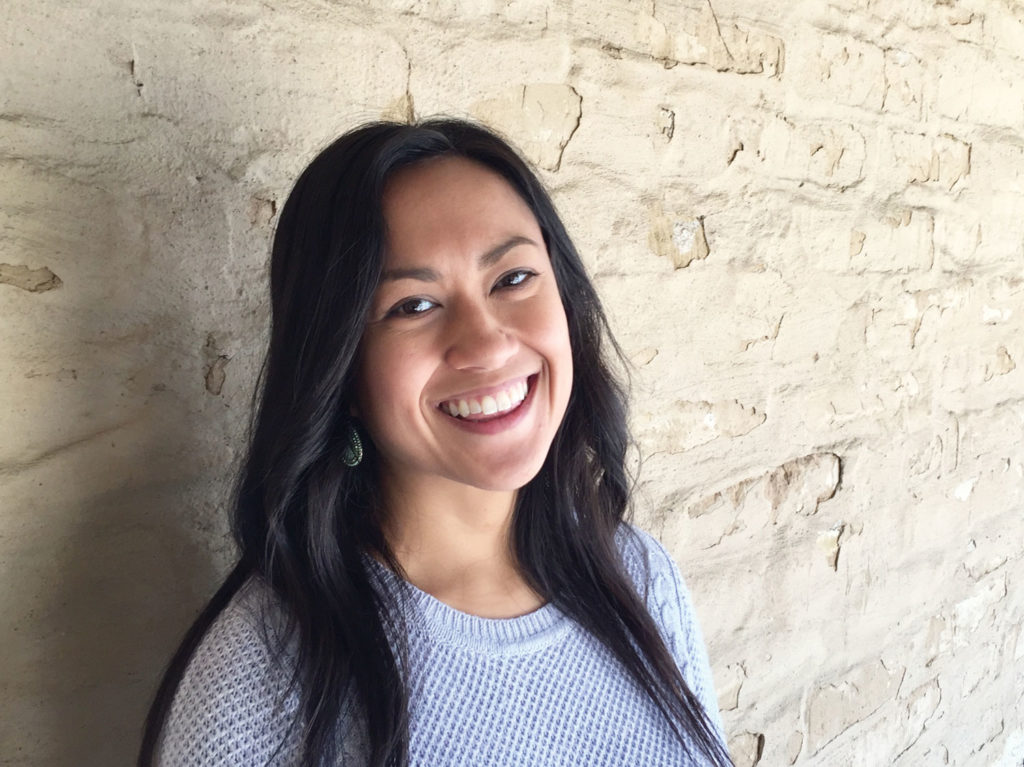
There are funny anecdotes of trying to set boundaries with neighbors and locals who are as curious to learn about Douglas as she is to learn about her Filipino side (and the shameless questions that come with that of ‘what are you?’ Do you have a boyfriend?’), peppered with travelogues of adventures in other destinations of the archipelago country. But there is also the mental toll that living in a new country can take on one individual and whether we truly belong as Filipino Americans in the physical sense either in the Philippines or the U.S.
“At the end of the day, we can’t overlook that Filipino Americans are very diverse. There are people who are very familiar with Filipino culture and are very immersed in it but there are other people on the other side of the spectrum who know nothing about it, yet have a desire to learn,” Douglas told the Asian Journal.
Email us at [email protected] to share your reading list and other books by Filipino and Fil-Am authors to check out this year.







